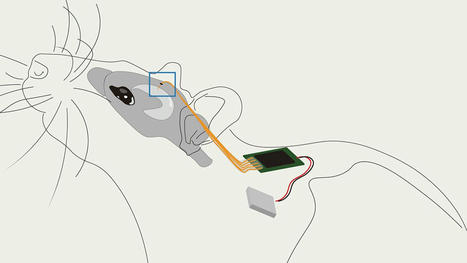As researchers learn more about the brain, it has become clear that responsive neurostimulation is becoming increasingly effective at probing neural circuit function and treating neuropsychiatric disorders, such as epilepsy and Parkinson's disease. But current approaches to designing a fully implantable and biocompatible device able to make such interventions have major limitations: their resolution isn't high enough and most require large, bulky components that make implantation difficult with risk of complications.
A Columbia Engineering team led by Dion Khodagholy has come up with a new approach that shows great promise to improve such devices. Building on their earlier work to develop smaller, more efficient conformable bioelectronic transistors and materials, the researchers orchestrated their devices to create high performance implantable circuits that allow reading and manipulation of brain circuits.
Their multiplex-then-amplify (MTA) system requires only one amplifier per multiplexer, in contrast to current approaches that need an equal number of amplifiers as number of channels.
The team built the MTA device and then confirmed its functionality by developing a fully implantable, responsive embedded system that can acquire—in real time—individual neural action potentials using conformable conducting polymer-based electrodes. It can accomplish this with low-latency arbitrary waveform stimulation and local data storage—all within a miniaturized (approximately the size of a quarter) physical footprint.
Khodagholy collaborated on the study, published today by Proceedings of the National Academy of Sciences (PNAS), with Jennifer N. Gelinas, Department of Neurology and the Institute for Genomic Medicine at Columbia University Irving Medical Center.
read more at https://medicalxpress.com/news/2021-05-neuroelectronic-brain-circuits.html



 Your new post is loading...
Your new post is loading...








